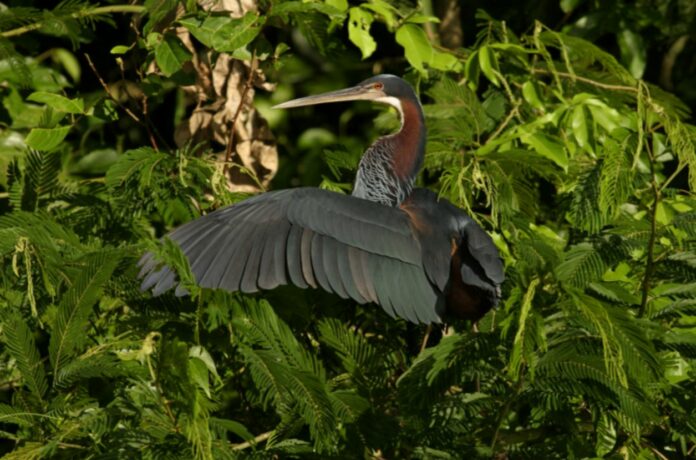“If we do not take action to protect threatened species and avert extinctions, the functioning of ecosystems will be dramatically disrupted,” warns the author.
New research finds that bird species with severe or uncommon combinations of features are most likely to become extinct.
The conclusions were published in the journal Functional Ecology today.
A new study led by scientists at Imperial College London finds that the birds with the most unique features are also the ones that are most endangered. The loss of these species and the specific roles they play in the environment, including seed dispersion, pollination, and predation, might have devastating effects on the health of ecosystems.
The study, which is the most thorough of its kind to date, examined the extinction risk and physical characteristics (such as wing length and beak shape) of 99% of all existing bird species.
In simulated situations in which all threatened and near-threatened bird species died extinct, the researchers discovered that the physical (or morphological) diversity of birds would decrease substantially more than in random extinction scenarios.
The Christmas Frigatebird (Fregata andrewsi), which only breeds on Christmas Island, and the Bristle-thighed Curlew (Numenius tahitiensis), which makes an annual migration from its breeding grounds in Alaska to South Pacific islands, are two bird species that are both morphologically distinctive and endangered.T
The results of the study show “that extinctions will most likely prune a large proportion of unique species from the avian tree,” says lead author Jarome Ali, adding “losing these unique species will mean a loss of the specialised roles that they play in ecosystems.
“If we do not take action to protect threatened species and avert extinctions,” warns the author, “the functioning of ecosystems will be dramatically disrupted.”
In the study, the authors used a set of measurements from 9943 different bird species that were taken from both living birds and museum specimens. Physical characteristics such as beak size and form as well as the lengths of wings, tails, and legs were measured.
The authors used the IUCN Red List’s current threat status for each species to figure out how likely it was that the species would go extinct. Then they performed simulations to see what would occur if the most endangered bird species became extinct.
Although the dataset used in the study was able to demonstrate that the most distinctive birds were also designated as vulnerable on the IUCN Red List, it was unable to demonstrate the relationship between uniqueness and extinction risk in birds.
“One possibility,” according to Ali, “is that highly specialised organisms are less able to adapt to a changing environment, in which case human impacts may directly threaten species with the most unusual ecological roles.
“More research is needed to delve deeper into the connection between unique traits and extinction risk.”
Image Credit: Joe Tobias
